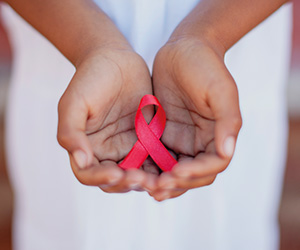We help you sort fact from fiction when it comes to the epidemic, to help you live your best life. By Cindy Tilney
 Myth 1
Myth 1
HIV in South Africa is strictly a medical problem, not a social one
Back in the 1980s, when HIV was first diagnosed in Southern Africa, it was viewed as a medical problem. But then, mother-to-child transmission was identified as the primary cause of infection among children – and scientists were still scrambling to develop effective medication. Most kids born with HIV were unlikely to make it to adulthood.
Since then, medical developments have produced unbelievable results in terms of HIV/Aids treatments – and in preventing transmission from mothers to children.
HIV/Aids medicine – antiretrovirals (ARVs) – is now available for free in South Africa through the public health service and those patients who’re fully committed to their medication regime can expect to live long, fruitful lives.
‘Today, I’m more worried about the psychosocial challenges than about the physical and medical issues,’ says Dr Paul Roux, head of paediatrics at Cape Town’s Groote Schuur Hospital and co-founder of The Kidzpositive Family Fund, an NGO that offers their support to HIV-positive children and their families.
‘This is the first generation of HIV-positive children who are making it to adolescence, with all the complexities that go along with that phase. And all this often against a backdrop of crime, poverty or even abuse.’
At the beginning of the Aids crisis, the gaping hole in the system was the need for effective medical treatment. That hole has now shifted to the need for adequate psychosocial services, an area that has often been neglected.
‘Compliance in sticking to ARVs is a crucial part of the HIV issue today, and since NGOs are central in facilitating this through the use of counselling and intervention programmes, there’s still a tremendous need for resources in this department,’ says Dr Roux.
Myth 2
I’m HIV-positive, so my life as I know it is over
Feelings of despair, anger or anxiety can sometimes accompany an HIV-positive diagnosis, but there is no need to feel you can’t live a normal life despite your HIV-status, says psychologist and HIV counsellor Jenny Gray.
‘The medical profession is so cutting edge and is constantly delivering new treatments and uncovering new knowledge. So, if you diligently stick to your medication regime and you also have a healthy sense of self – in the spiritual, psychological and social sense – a full, happy life is possible,’ says Jenny.
‘One of my clients said she didn’t feel “normal” because she has to take pills every day, but just think about how many people there are who take daily chronic medication for diabetes, depression and other long-term illnesses.’
Myth 3
I don’t need to stick to my medication regime
According to Dr Roux, research on the treatment of HIV and Aids has shown resistance is more likely to develop in patients who take their ARVs 70% of the time than those who take it only 40% of the time. ‘Some patients think that if they wake up a few hours after they usually take their medication, they shouldn’t take it at all, but it’s vitally important they take it late rather than skip it altogether.’
Likewise, you should not skip your meds simply because you have been drinking alcohol. ‘It’s a myth that ARVs don’t work if they’re mixed with alcohol,’ adds clinical psychology researcher Dr Lena Andersen.
‘We encourage our patients not to drink alcohol for two primary reasons – because they tend to forget to take their ARVs and because we’d like them to maintain optimal health, and this is not the case if alcohol is being abused,’ she says.
Myth 4
If I am HIV-positive, I can never have kids
With medical advances in recent years, couples in which one or even both partners are living with HIV can have kids – safely for them and safely for the baby. ‘For the first time in many years, we can be very encouraging and supportive of parents living with HIV who want to have children,’ says Mitch Besser of mothers2mothers, an organisation that trains, employs and empowers Mentor Mothers – mothers living with HIV – to work alongside the doctors and nurses in understaffed health centres as counsellors and educators. ‘With proper medical care, babies can be born HIV-negative and parents can stay healthy to care for them.’
When a father or mother living with HIV wants to have a baby with an HIV-negative partner, the challenge is to conceive a baby without the other getting infected with HIV. This is possible with the support of specialist doctors and nurses in special clinics who provide guidance, he explains.
‘For a couple contemplating a pregnancy, in which one or both is living with HIV, it’s important to get care early, long before the pregnancy even begins. For the HIV-positive mother, it means starting to take HIV/Aids medicine to reduce the amount of virus in her system before a baby is conceived and then taking these meds for the entire pregnancy, during delivery and also breastfeeding (if she chooses to breastfeed). With all of these steps, 99% of babies will be born HIV-negative.’
Myth 5
If I’m raped, there is nothing I can do to prevent HIV transmission
If you can get to a hospital within a few hours of being raped, your chances of contracting HIV are minimal, explains Reinette Evans, counsellor and director of Helderberg Rape Crisis centre. ‘The sooner you get medical attention, the better,’ she emphasises.
‘The only way to bring your rapist to justice is to open a case against them – but even if you don’t want to go to the police, you can just go straight to a hospital or clinic to get the necessary medication from there, and it will be free of charge.’
Click here for a detailed list of the clinics that provide ARVs. If the hospital you visit doesn’t have, call the Aids Helpline on 0800 012 322 and ask them where you can get medication.
Useful contacts
• kidzpositive.org
• m2m.org







